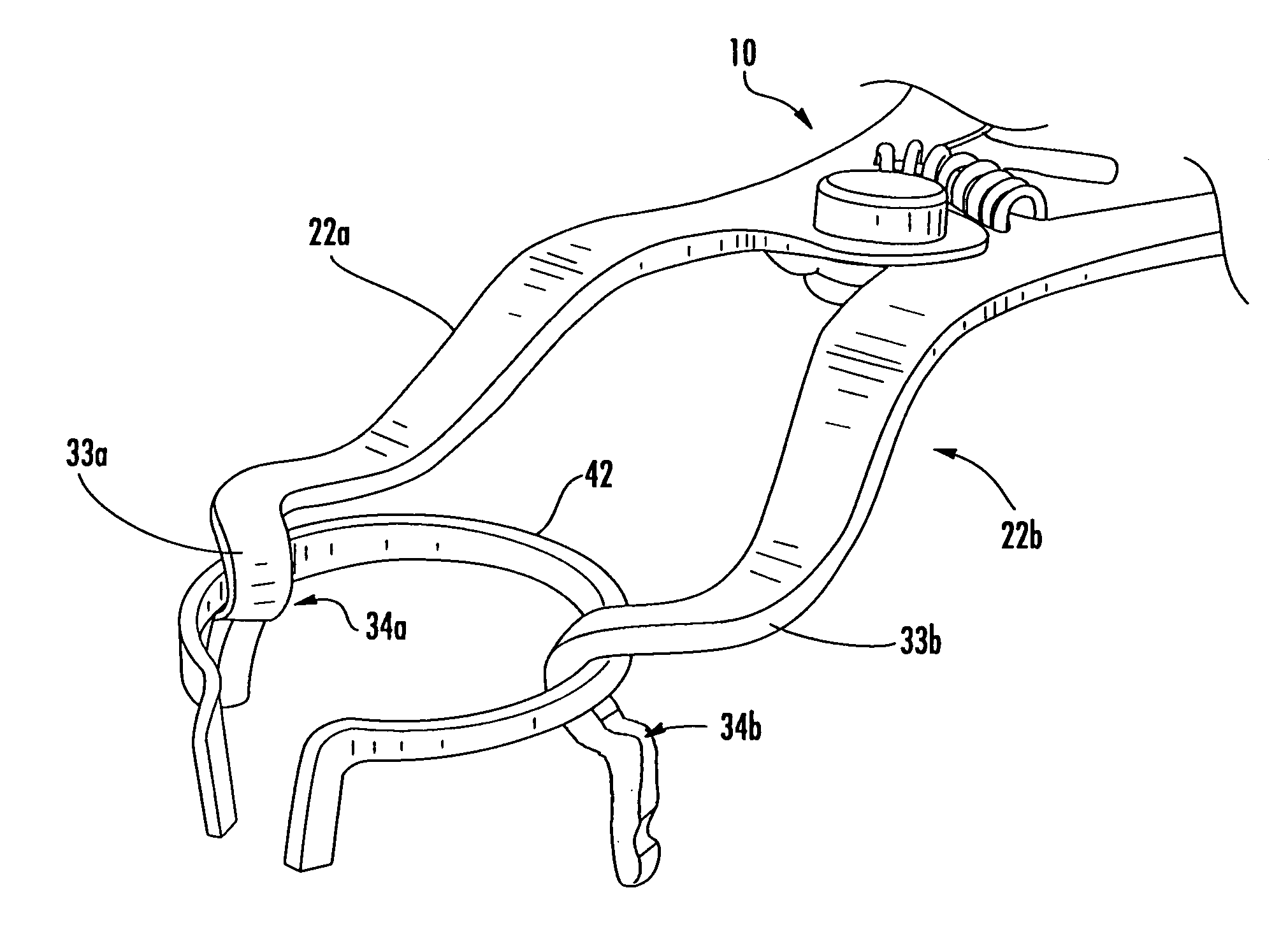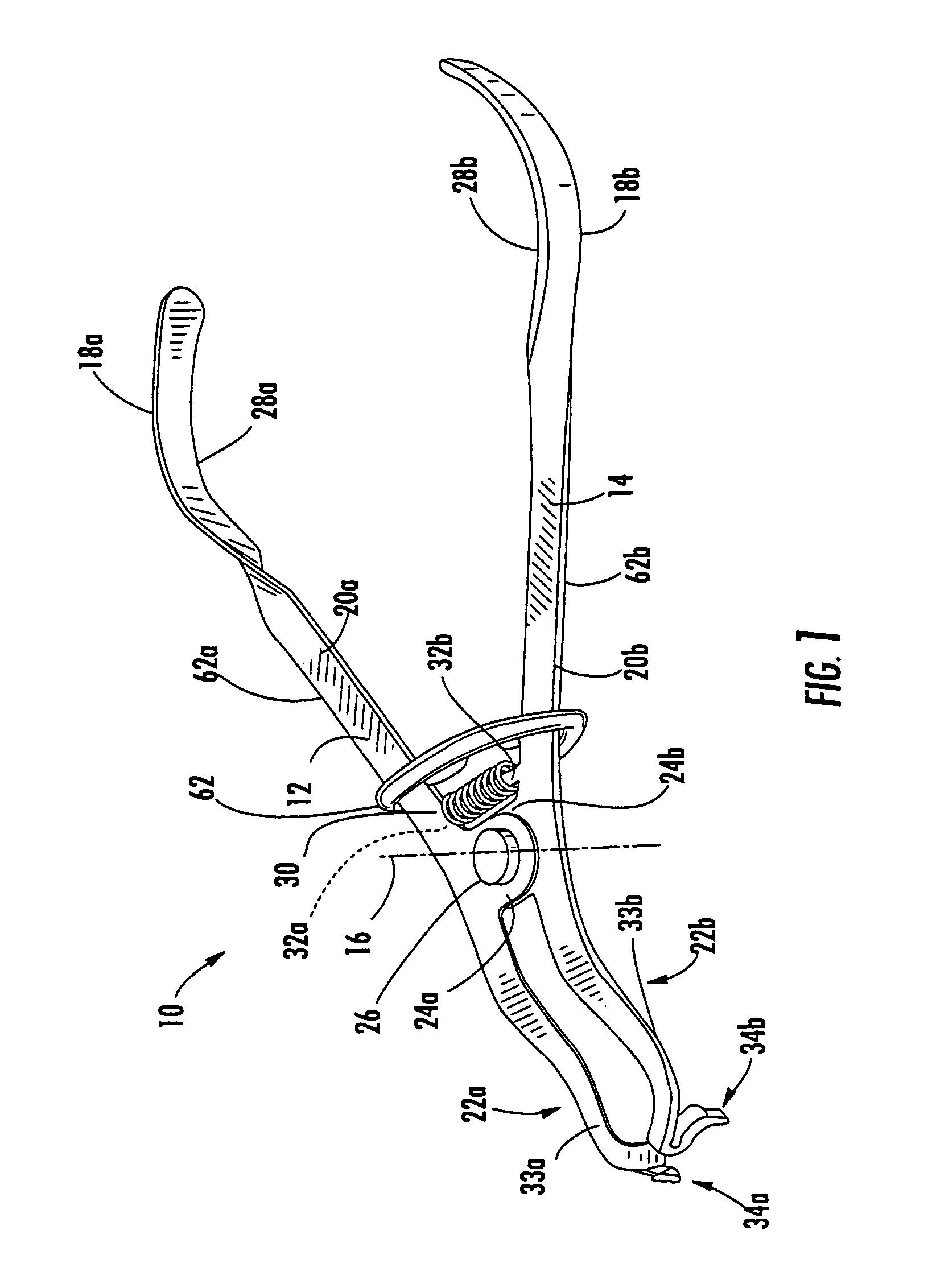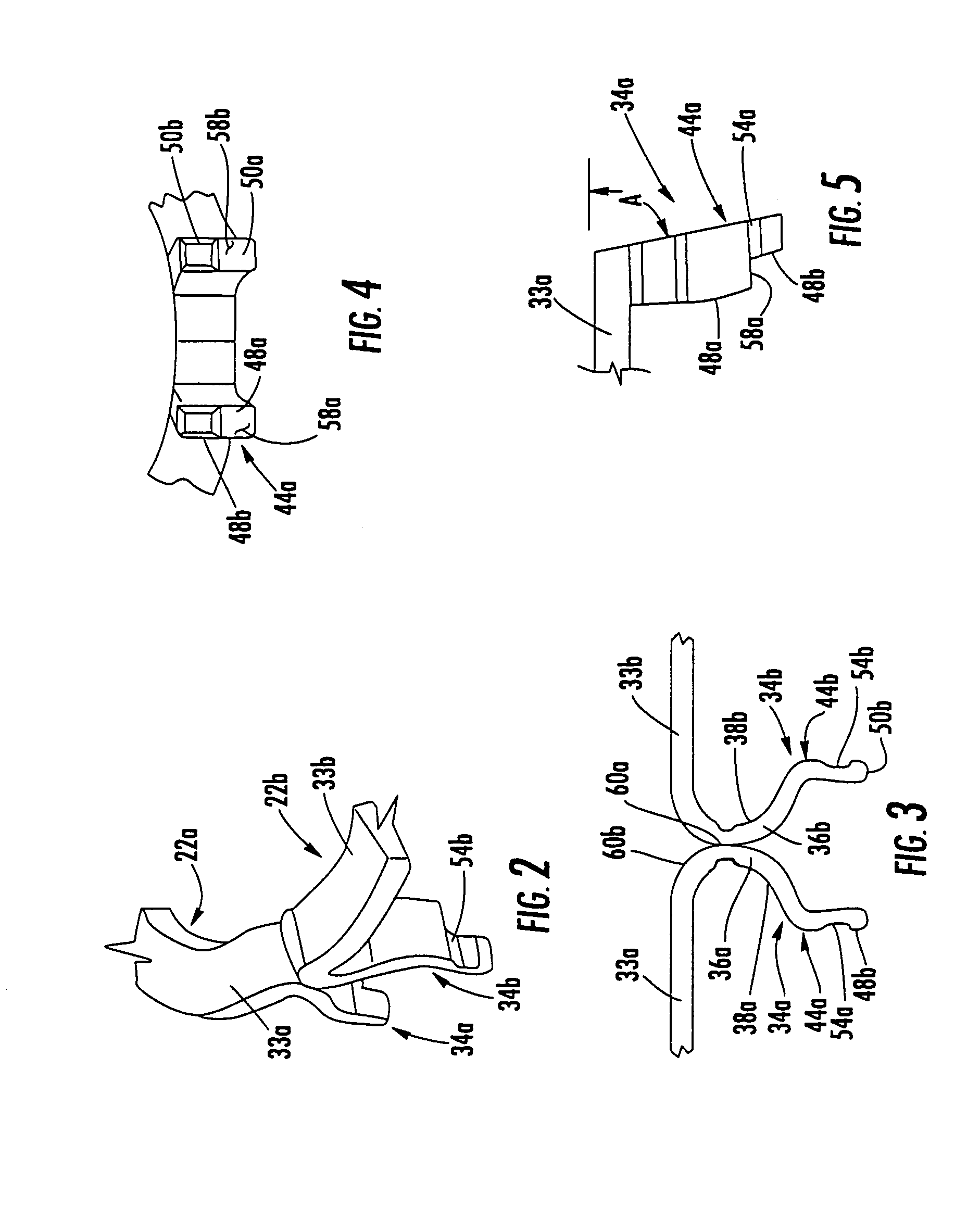Dental instrument
a technology for teeth and jaws, applied in the field of dental instruments, can solve the problems of reducing the overall success of composite restorations,
- Summary
- Abstract
- Description
- Claims
- Application Information
AI Technical Summary
Benefits of technology
Problems solved by technology
Method used
Image
Examples
first embodiment
[0076]Referring to FIG. 14, the numeral 110 generally designates another embodiment of the dental instrument of the present invention. Dental instrument 110 is of similar construction to dental instrument 10 and includes a pair of arms 112 and 114, which are pivotally coupled about an axis 116 by a pin 126. Each arm 112 and 114 includes a proximal portion 118a, 118b, a medial portion 120a, 120b, and a distal portion 122a, 122b, respectively. For further details of proximal and medial portions 118a, 118b, 120a, 120b reference is made to the
second embodiment
[0077]In the second embodiment, distal portions 122a and 122b include prongs 134a and 134b that depend from first portions 133a and 133b in a similar manner to the previous embodiment. However, in the present embodiment, prongs 134a and 134b include pivotal tines 144a and 144b, which are pivotally mounted to C-shaped portions 136a and 136b so that tines 144a and 144b may be rotated or pivoted between a stored position where they do not project below C-shaped portions to eliminate any potential interference with the placement of the ring 40 and an extended position (such as shown in FIG. 15) where lower or distal ends 148a and 150b are positioned for engaging a rubber-dam clamp. For example, tines 144a and 144b may be pivotally mounted to C-shaped portions 136a and 136b by pins 151a and 151b and, further, incorporate a detent mechanism so that the tines are held in their respective positions unless acted upon by a force sufficient to release the detent mechanism.
[0078]Referring to FI...
PUM
 Login to View More
Login to View More Abstract
Description
Claims
Application Information
 Login to View More
Login to View More - R&D
- Intellectual Property
- Life Sciences
- Materials
- Tech Scout
- Unparalleled Data Quality
- Higher Quality Content
- 60% Fewer Hallucinations
Browse by: Latest US Patents, China's latest patents, Technical Efficacy Thesaurus, Application Domain, Technology Topic, Popular Technical Reports.
© 2025 PatSnap. All rights reserved.Legal|Privacy policy|Modern Slavery Act Transparency Statement|Sitemap|About US| Contact US: help@patsnap.com



